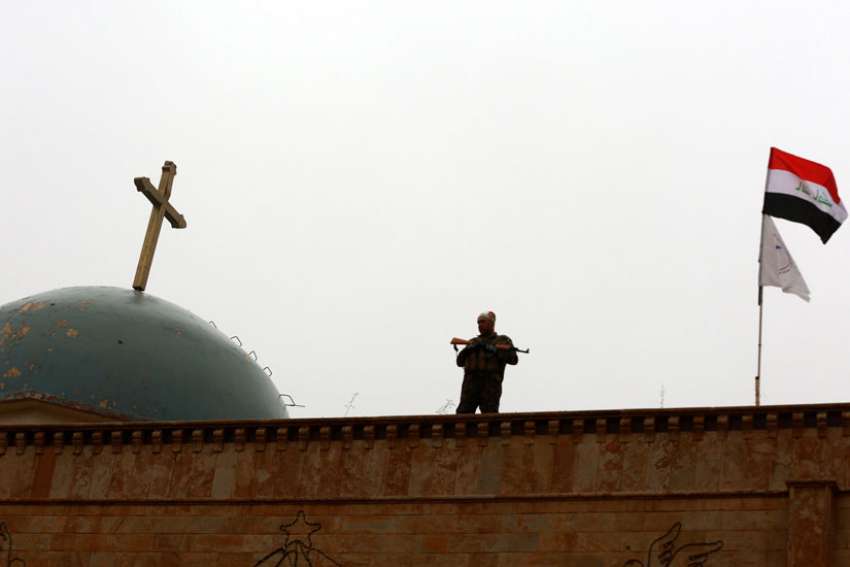He told international Catholic charity Aid to the Church in Need: “Look at my house: it is damaged, most of my furniture has been stolen and my household effects are broken. Other inhabitants of Qaraqosh had prepared me for what I would find in the city. I had heard stories and seen pictures of the destruction caused by the jihadists. Now that I am seeing the city with my own eyes, I do not know what to feel. The terrorists have destroyed a lot of my possessions.”
Father Sharbil Eeso, a 72-year-old Syrian Catholic priest, also returned to the town, also known as Bakhdida. He found the seminary in shambles. In search of hidden treasures, the occupiers brought down ceilings and destroyed statues.
“We are not allowed to clear up the mess yet,” the priest said, adding that “first the damage needs to be assessed carefully and documented thoroughly, and that can only start when the city is safe. Last week, a jihadist emerged from the tunnel system which ISIS has built underneath the city. The army immediately shot and killed him: it was a 13-year-old boy.”
The jihadists made full use of the churches in Qaraqosh, even writing battle instructions on church walls. St. George’s Syrian Catholic Church was turned into a bomb factory; hundreds of bombs and grenades, in all shapes and sizes, are still lying there. There are also supplies of deadly chemicals, ingredients to make powerful explosives.
Like Father Eeso, Louis Petrus firmly intends to return to Qaraqosh. He said: “I don’t want to leave Iraq, unless all the inhabitants stay away and leave. But if two or three families return to Qaraqosh, I will too. This is my country. As soon as it is safe in the city and we receive permission to live here again, I want to rebuild my life in Qaraqosh. This is my place, I shall remain here until I die.”
“We really want to return to Qaraqosh, with our children,” said the mayor of the city, Nisan Karromi. But he added, “it will be a long time before all damages will be repaired.”
“We not only have to reconstruct and rebuild this city, but we also have to compensate the people for the damages they have suffered,” he said. “Now that the Iraqi government is in crisis, the international community will have to help make Iraq habitable again.”
Another concern Christians have is that both the Iraqi government and the Kurds – whose forces chased out the Islamic State – have designs on their land.
Manal Matti recently visited the blackened church of the Immaculate Conception. She is surprised by the mannequins that are spread out across the church grounds, shot through with bullets.
“The jihadists used the church as a shooting range, and the mannequins as targets,” she said, horrified. The woman used to run a beauty salon, just steps away from the church. She pondered: “I do not know when I will ever be able to see the inhabitants of Qaraqosh coming again to my beauty salon.”
(Jaco Klamer writes for Aid to the Church in Need, an international Catholic charity under the guidance of the Holy See, providing assistance to the suffering and persecuted Church in more than 140 countries.)


